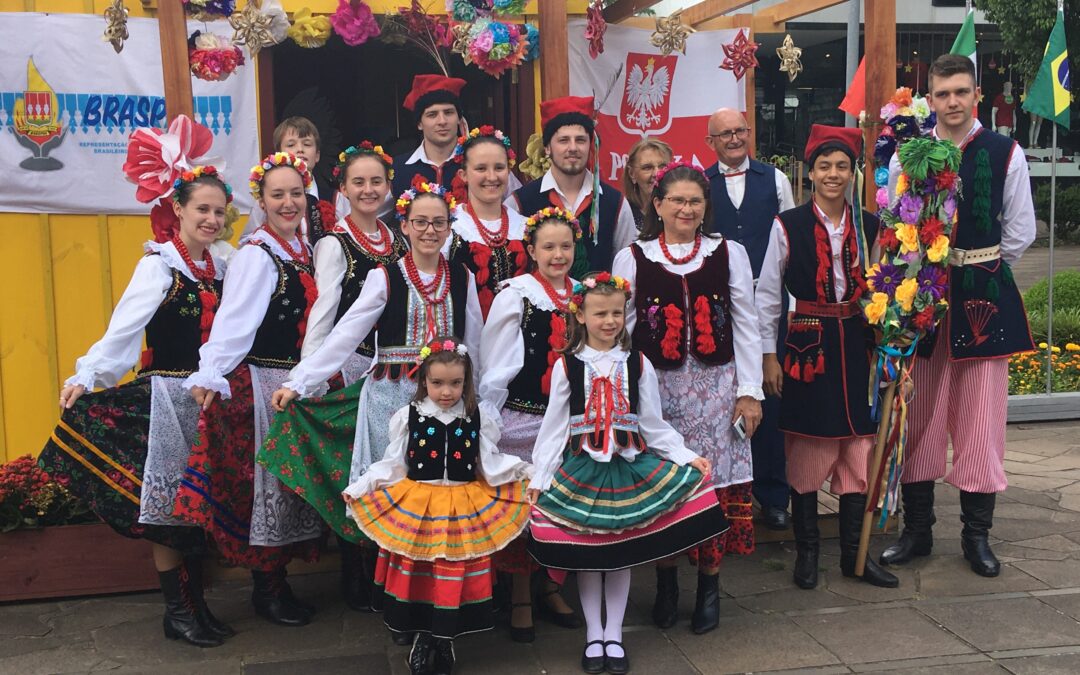A centre for the study of Polish culture has opened in Brazil as part of a collaboration between two universities in the respective countries. The institute will also act as a focal point for research on the large Polish diaspora in Brazil and the rest of Latin America.
The John Paul II Centre for the Study of Polish Culture was inaugurated in the city of Porto Alegre last week. It has been established by the Catholic University of Lublin (KUL) in cooperation with the Pontifical Catholic University of Rio Grande do Sul (PUCRS).
The centre will “offer a meeting place to those who want to enrich one another”, said KUL’s rector, Mirosław Kalinowski. It will promote and teach the Polish language to Brazilian students, disseminate Polish history and culture in Brazil, as well as safeguard Polish cultural heritage in the country.
The first classes for PUCRS students have already begun, organised in cooperation with the Polish National Agency for Academic Exchange (NAWA), a government agency. In future, they will also be open to anyone interested in attending.
The four-month course includes Polish language classes as well as a series of academic lectures on Polish history, linguistics and sociology.
Kalinowski expressed hope that among those who attend in future will be members of Brazil’s Polish diaspora. There are estimated to be around 2 million people with Polish roots in Brazil.
Their ancestors mostly arrived during a mass emigration of Poles that began in the 19th century, when Poland was partitioned between Russia, Germany and Austria. Porto Alegre was one of the cities in Brazil that attracted Polish immigrants at this time.
Polish has been made an official language in the Brazilian town of Áurea, which was founded in 1906 by Poles and where today over 90% of the population are of Polish descent https://t.co/waxA2MPKrb
— Notes from Poland 🇵🇱 (@notesfrompoland) August 1, 2022
While establishing the new centre in the city, researchers from KUL also carried out a project on the history of the Polish diaspora in Brazil, which involved identifying and merging relevant archives. A resultant book was published in both Polish and Brazilian Portuguese.
“Links with our homeland are still alive and strong among the Brazilian Polish community, and they now go hand in hand with the teaching they can receive” at the new centre, says its coordinator, Arkadiusz Stasiak, a history professor at KUL.
In 2022, KUL and Maria Curie-Skłodowska University (UMCS), also located in Lublin, signed an agreement to create what would be the world’s first online degrees in Polish Studies available to international students.
Last year, KUL also established a Polish Diaspora Centre that aims to form links with and create educational programmes for Polish communities abroad. Following Kalinowski’s visit to Brazil, he also travelled to Argentina to discuss developing such opportunities there.

Notes from Poland is run by a small editorial team and published by an independent, non-profit foundation that is funded through donations from our readers. We cannot do what we do without your support.
Main image credit: Dziczka/Wikimedia Commons (under CC BY-SA 4.0)

Daniel Tilles is editor-in-chief of Notes from Poland. He has written on Polish affairs for a wide range of publications, including Foreign Policy, POLITICO Europe, EUobserver and Dziennik Gazeta Prawna.



















